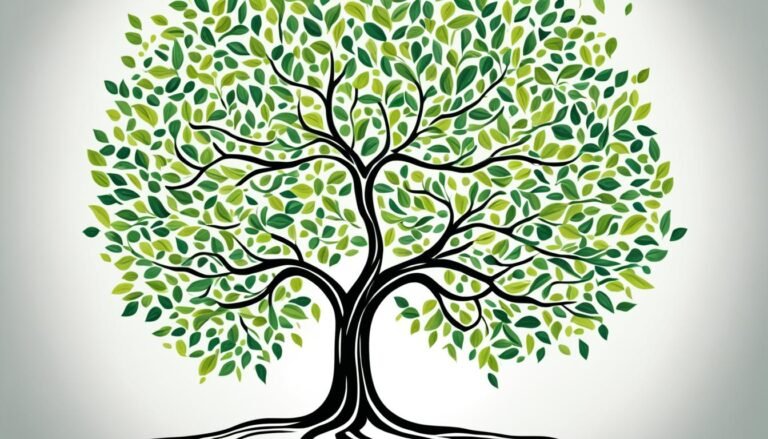Intercultural Competence as a Soft Skill
Understanding intercultural competence as a soft skill is crucial for successfully maneuvering through diverse environments. It fosters global teamwork by appreciating different customs and communication styles. In the workplace, it enhances collaboration, productivity, and inclusivity among diverse teams. Developing cultural awareness improves communication skills, including nonverbal cues and active listening. Building trust and respect across cultures requires reliability, integrity, and acknowledging differences. Overcoming cultural barriers involves empathy, awareness, and open communication. Intercultural competence shapes team dynamics, influencing interactions and decision-making. These insights offer a foundation for successful global business relationships and collaborations.
Key Takeaways
- Intercultural competence enhances teamwork and collaboration.
- Cultural understanding fosters inclusivity and creativity.
- It influences communication, decision-making, and team dynamics.
- Soft skill crucial for navigating diverse work environments.
- Develops respect, trust, and adaptability across cultures.
Importance of Intercultural Competence
Understanding the significance of intercultural competence lies at the core of maneuvering diverse environments effectively. Cross-cultural understanding is pivotal for fostering global teamwork. Without cultural awareness and diversity skills, moving through international collaborations can be challenging. Developing an appreciation for different customs, traditions, and communication styles is essential in today's interconnected world.
Global teamwork thrives when individuals possess the ability to adapt to various cultural norms. This adaptability stems from a deep-rooted understanding of how different societies operate. Intercultural competence goes beyond merely tolerating differences; it involves actively seeking to learn from diverse perspectives.
Benefits in the Workplace
Embracing intercultural competence in the workplace enhances collaboration and productivity among diverse teams. Cultural awareness and understanding workplace diversity are essential components of a successful modern workplace. Employees who possess intercultural competence are more adept at maneuvering diverse work environments, fostering positive interpersonal relationships, and leveraging a global perspective.
Cultural awareness in the workplace enables individuals to recognize and appreciate the differences in beliefs, values, and behaviors among colleagues from various backgrounds. This awareness promotes inclusivity and respect within teams, leading to a more harmonious work environment. Moreover, employees who are culturally aware are better equipped to communicate effectively with coworkers from different cultural backgrounds, thereby minimizing misunderstandings and conflicts.
Workplace diversity is enriched by individuals with intercultural competence, as they bring unique perspectives and approaches to problem-solving and decision-making processes. This diversity of thought leads to innovation and creativity within teams, driving the organization towards success in a globalized world. To sum up, intercultural competence is a valuable soft skill that can greatly benefit the workplace by enhancing collaboration, productivity, and overall team dynamics.
Enhancing Communication Skills
You can improve your communication skills by paying attention to nonverbal cues, such as body language and facial expressions.
Practicing active listening techniques, like summarizing what you've heard, can also enhance your ability to understand others.
Participating in cultural sensitivity training can help you navigate diverse communication styles effectively.
Nonverbal Cues Importance
In effective communication, paying attention to nonverbal cues plays an essential role in conveying your message accurately and understanding others better. Body language interpretation and cross-cultural understanding are crucial components of nonverbal communication.
Different cultures may have distinct gestures, facial expressions, and postures that convey meanings. Being aware of these nuances enhances cultural awareness and prevents misunderstandings. For example, in some cultures, maintaining direct eye contact signifies confidence and honesty, while in others, it may be perceived as confrontational.
Active Listening Techniques
Active listening techniques greatly enhance communication skills by fostering deeper understanding and connection between individuals in diverse contexts. Mindful listening and cultural awareness are key components in this process.
By actively engaging in conversations, you demonstrate a genuine interest in what others have to say, creating a more inclusive environment. Empathetic responses play an essential role in acknowledging the emotions and perspectives of others, leading to stronger relationships and effective communication.
Through active listening, you can gain valuable insights into diverse perspectives, allowing for a more thorough understanding of different cultural backgrounds. By practicing these techniques consistently, you not only improve your communication skills but also cultivate a deeper appreciation for the richness of diversity in intercultural interactions.
Cultural Sensitivity Training
Enhancing communication skills through cultural sensitivity training involves developing a keen awareness of diverse cultural norms and practices.
Cultural immersion experiences and sensitivity workshops can provide firsthand exposure to different customs and traditions.
Diversity training programs offer insight into the importance of inclusivity and understanding individual differences.
Cross-cultural interactions allow for real-life application of learned skills, fostering mutual respect and effective communication.
Through these avenues, individuals can navigate intercultural encounters with sensitivity and respect, leading to more harmonious relationships and successful collaborations.
Embracing cultural sensitivity not only enhances communication but also cultivates a deeper appreciation for the richness of diversity in today's interconnected world.
Building Trust and Respect
To foster strong relationships and effective communication across cultures, establishing a foundation of trust and respect is paramount. Trust building involves being reliable, keeping promises, and demonstrating integrity. Cultivating cultural respect entails acknowledging and valuing differences in beliefs, traditions, and communication styles. By actively listening and showing empathy towards individuals from different cultural backgrounds, you can lay the groundwork for meaningful interactions.
| Trust Building | Cultural Respect |
|---|---|
| Be reliable | Acknowledge differences |
| Keep promises | Value traditions |
| Demonstrate integrity | Respect communication styles |
Building trust involves transparency and consistency in your actions, which can help bridge any cultural divides that may exist. Respect for cultural nuances shows an openness to learning and appreciating diverse perspectives. By embodying trustworthiness and cultural sensitivity, you pave the way for authentic connections and collaboration across cultural boundaries.
Overcoming Cultural Barriers
Traversing through cultural barriers requires a keen understanding of the nuances that shape interactions between individuals from different backgrounds. To overcome these challenges successfully, you must cultivate cross-cultural understanding and adaptability.
Here are some key strategies to help you navigate cultural barriers:
- Cultural Awareness: Developing a deep awareness of the values, norms, and traditions of other cultures can help you appreciate different perspectives and avoid misunderstandings.
- Empathy: Putting yourself in the shoes of others allows you to understand their feelings, experiences, and challenges, fostering mutual respect and trust.
- Open Communication: Encouraging open and honest communication can bridge cultural gaps by promoting transparency and clarity in interactions.
Impact on Team Dynamics
The dynamics within a team are greatly influenced by the level of intercultural competence among its members. When team members possess a high degree of intercultural competence, it positively impacts team cohesion and cultural dynamics. Team cohesion, which refers to the ability of a group to work together effectively while maintaining positive social interactions, is enhanced when team members are culturally competent. This competence allows individuals to navigate differences in communication styles, problem-solving approaches, and conflict resolution strategies that may arise due to cultural diversity within the team.
Cultural dynamics within a team are also markedly affected by the level of intercultural competence present. When team members understand and respect each other's cultural backgrounds, beliefs, and values, it fosters a more inclusive and harmonious team environment. This understanding can lead to increased collaboration, creativity, and innovation within the team, as diverse perspectives are valued and integrated into the team's processes and decision-making. Overall, intercultural competence plays an important role in shaping the dynamics of a team, influencing how team members interact, communicate, and collaborate with one another.
Cultural Sensitivity Training
When approaching Cultural Sensitivity Training, you'll explore Cross-Cultural Communication Strategies to enhance your ability to interact effectively across different cultures.
You'll also focus on Recognizing Cultural Differences, which is essential for fostering mutual respect and understanding in diverse environments.
Developing these skills can lead to smoother interactions and more successful collaborations in multicultural settings.
Cross-Cultural Communication Strategies
Traversing diverse cultural landscapes requires a nuanced understanding of cross-cultural communication strategies, emphasizing the importance of Cultural Sensitivity Training. When exploring conversations across cultures, consider the following:
- Cultural awareness: Acknowledge and respect the differences in values, beliefs, and customs.
- Language barriers: Be mindful of language nuances and potential misunderstandings that can arise.
- Effective communication: Adapt your communication style to guarantee clarity and avoid misinterpretations due to cultural norms.
Recognizing Cultural Differences
Traversing diverse cultural terrains necessitates a keen awareness of recognizing and understanding cultural differences, a key component of Cultural Sensitivity Training. Understanding customs is essential in deciphering the intricate tapestry of various cultures.
Cultural awareness enables you to navigate interactions with sensitivity and respect. It involves being attuned to non-verbal cues, communication styles, and societal norms that differ across cultures.
By actively engaging in Cultural Sensitivity Training, you equip yourself with the tools to decode and appreciate the nuances of different cultural practices. This heightened awareness fosters empathy and minimizes misunderstandings, fostering harmonious relationships in multicultural settings.
Embrace the opportunity to broaden your perspective and deepen your intercultural competence through actively recognizing and respecting cultural differences.
Global Business Success
How does mastering intercultural competence contribute to achieving global business success? Understanding and embracing cultural diversity within the global economy is important for businesses aiming for success. By honing your intercultural competence, you can navigate the complexities of international markets and interactions, ultimately enhancing your business outcomes.
Here are some key ways in which mastering intercultural competence can drive global business success:
- Building Trust: Establishing trust with partners, clients, and customers from diverse cultural backgrounds is essential for successful global business relationships.
- Effective Communication: Clear and culturally sensitive communication is essential in avoiding misunderstandings and fostering productive collaborations in the global marketplace.
- Adaptability: Being adaptable and open to different cultural practices and norms allows for smoother business operations and paves the way for successful ventures across borders.
Mastering intercultural competence not only improves your business acumen but also positions you for sustainable success in the dynamic landscape of the global economy.
Strategies for Development
To enhance your intercultural competence effectively, consider implementing tailored strategies for development that align with your specific business objectives and cultural contexts. Developing cross-cultural understanding is essential for personal growth and professional development.
One effective strategy is to actively engage in intercultural interactions. This can involve participating in cultural exchange programs, attending multicultural events, or simply seeking out opportunities to collaborate with individuals from different cultural backgrounds.
Another strategy is to continuously educate yourself about different cultures, their values, communication styles, and business practices. This can be achieved through workshops, online courses, or simply by reading books and articles on intercultural communication. By expanding your knowledge in this area, you'll be better equipped to navigate diverse cultural settings and build strong relationships with colleagues and clients from around the world.
Furthermore, seeking feedback from others on your intercultural interactions can provide valuable insights for improvement. Reflecting on past experiences and identifying areas for growth is essential for enhancing your intercultural competence and succeeding in a globalized business environment.
Case Studies and Best Practices
Exploring real-world case studies and industry best practices offers invaluable insights into the practical applications of intercultural competence in diverse business settings. Case studies provide a glimpse into how different companies have successfully navigated cross-cultural challenges, highlighting the importance of cultural immersion for effective communication and collaboration.
Best practices, on the other hand, offer structured approaches that have proven to enhance intercultural understanding and teamwork through intercultural training programs.
- Case studies: These real-life examples showcase how companies have leveraged cultural immersion to bridge cultural gaps and foster meaningful relationships with clients and partners from diverse backgrounds.
- Cultural immersion: Immerse yourself in different cultural experiences to gain a deeper understanding of customs, traditions, and communication styles, which can significantly improve intercultural competence.
- Best practices in intercultural training: Implementing structured intercultural training programs can equip employees with the knowledge and skills needed to effectively engage with individuals from various cultural backgrounds, promoting inclusivity and mutual respect in the workplace.
Conclusion
As you navigate the diverse landscape of today's globalized world, intercultural competence stands out as a crucial soft skill. Like a well-crafted tapestry, it weaves together communication, trust, respect, and understanding across cultural boundaries.
Embrace this skill as a key to opening doors to success in the workplace and beyond. Embrace the rainbow of cultures around you, and watch as your intercultural competence blooms into a beautiful garden of opportunities.








